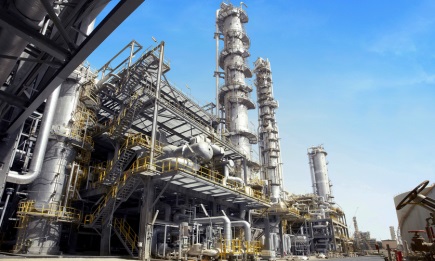Game-changer for the chemical industry

“The current shale gas revolution is causing much excitement because it is leading to job creation, economic growth and projected energy independence. Yet, at the same time, it causes concerns about the environmental impact, industrial competiveness and the resulting geopolitical changes,” Pieter Bruijnincx and Bert Weckhuysen from Utrecht University write in their article ‘Shale Gas Revolution: An Opportunity for the Production of Biobased Chemicals?’, which recently appeared in the peer-reviewed journal Angewandte Chemie International Edition.
Although it’s fiercely debated, most people involved in the shale gas discussion agree that it will be a game-changer for the chemical industry. Companies are rapidly adjusting to the change in energy flows, trying to take advantage of the cheap gas that now flows abundantly in countries like, Poland, China and Australia, and the most famous example, the US.
The ‘World Energy Outlook’ by the International Energy Agency predicted that shale gas will turn the US in a net natural gas exporter by 2020. In a more questioned projection, it was claimed that it would even become a net exporter of energy in 2030.
Threat to biobased economy?
Shale gas is often seen as a direct threat to the transition towards a biobased economy. Bruijnincx and Weckhuysen argue that, rather than a threat, the shale gas revolution provides exciting new opportunities for the production of a selection of biobased chemicals. It might enable the large-scale production and implementation of the first wave of biobased bulk chemicals, such as butadiene and aromatics.
Biofuels were considered a transition solution towards a more diverse and sustainable energy mix. “The shale gas revolution might narrow the window of opportunity in which advanced biofuels can play their important transitional role to a more sustainable society,” the chemists write.
Shale gas’ silver lining
The shale gas revolution might have a silver lining, when the impact on the production of biobased chemicals is considered. “An increased reliance on shale gas and other types of natural gas as a feedstock for the petrochemical industry will lead to a shortage of building blocks for the chemical industry. This provides a clear opportunity for biobased alternatives.
Between 2005 and 2012 the price of natural gas rose 35 percent in the EU while it dropped by 66 percent in the US. The cost of making petrochemicals is down by 50 percent in the US and up by 20 percent in Europe, compared to five years ago. This gives chemical producers in the US a significant advantage over their competitors in Europe and Japan.
The second large consequence might lead to a tight global supply of key commodity chemicals, Bruijnincx and Weckhuysen predict. This potential scarcity is caused by the changes in the production of ethylene. When cracking facilities are retrofitted from naphtha to the much lighter shale-derived feeds, it might lead to a shortage of valuable naphtha byproducts as propylene, butadiene and the aromatics benzene, toluene and xylene.
Shale gas and woodchips
The chemical industry might grow more sustainable with an increasing importance of shale gas compared to other, traditional fossil fuels. A mix of biomass with shale gas could lead to a comparable output of the most important building blocks of the petrochemical industry.
“Woodchips and other on-purpose renewable-based production routes for butadiene and benzene, toluene and xylene, and to a lesser extent, propylene have the potential to address shale-gas-related scarcity of these building blocks.”
The key challenge might not be so much the availability of this bio-based feedstock, but rather its costs. Waste from agriculture and wood should be viewed as the end goal. In order to get there more robust and productive conversion technologies, involving catalysis, are needed.
“It is often said that the Stone Age did not end because we ran out of stones and that the age of oil will not end because we run out of fossil fuels. Ironically, one might indeed even think that the large-scale utilization of an unconventional fossil resource, such as shale gas, may usher in a new era of a more sustainable chemical industry that produces some of its main bulk chemicals from biomass,” Bruijnincx and Weckhuysen conclude.
Meest Gelezen
Vrouwen houden universiteit draaiende, maar krijgen daarvoor geen waardering
Wederom intimidatie van journalisten door universiteit, nu in Delft
‘Burgerschapsonderwijs moet ook verplicht worden in hbo en wo’
Raad van State: laat taaltoets nog niet gelden voor hbo-opleidingen
Hbo-docent wil wel rolmodel zijn, maar niet eigen moreel kompas opdringen

